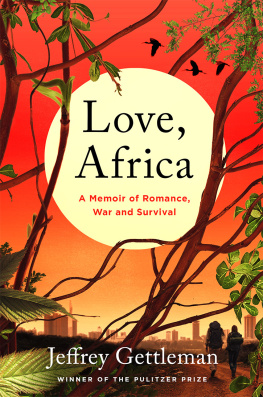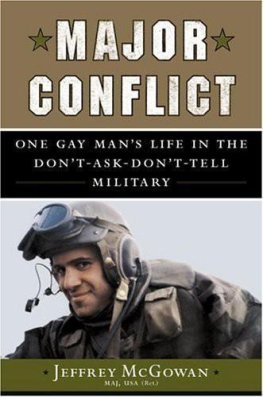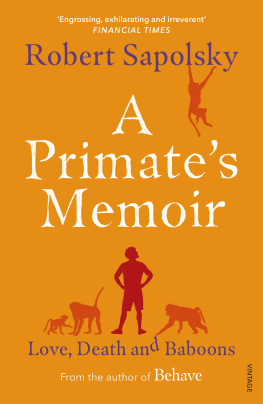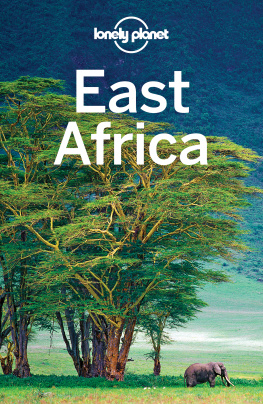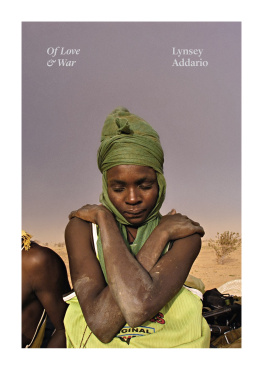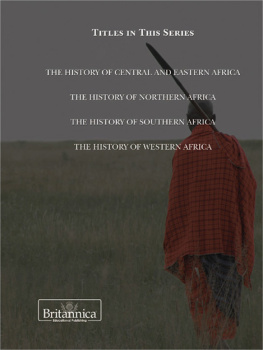Contents
To my camerado
The biggest stories often start with a scrap of paper, a phone number and an obviously fake name. The first hint of this story came from my friend Louis, a French diplomat. Louis was a good source. He had wavy hair, a big, intelligent face, and a weakness for cinnamon liqueur, tall African women, and conspiracy theories. We were sitting on the balcony at Trattoria, an Italian restaurant on a bustling street in downtown Nairobi, having lunch. Most diplomats stayed away from bustling streetsand downtown Nairobiso Trattoria afforded us a reliable degree of anonymity. We might have stuck out, two mzungus in the heart of the city, looking at each other across a table set with oil and vinegar and a red carnation peeking out of a chipped vase, but no one knew who we were. From where we sat, we could see the taxis and 4x4s edging past curbs painted in black and white. Crowds of people moved through the streetsuniversity students chatting, holding armfuls of books, butchers in white coats, newspaper vendors balancing stacks of papers on their heads, lawyers from the nearby courthouse exchanging greetings in the distinctive Kenyan fashion, arms relatively straight as they shook hands, still clasping each other for a few moments as they chatted. In the doorways of the banks and forex bureaus leaned watchmen with wooden clubs tucked under their arms. They eyed the street cautiously. It was the daily Nairobi churn, lit up by clear sunshine beaming off the storefronts and windshields.
Louis picked up his linen napkin, folded it into quadrants in a practiced European way, and blotted his lips, red from arrabbiata sauce. He gazed off.
Who knows whats going on in the Ogaden, he said, which meant, coming from Louis, something was going on in the Ogaden.
When I got back to the office, I called around to aid workers and human rights people who might know something about the Ogaden Desert, the poorest, most remote part of Ethiopia. That led to a meeting with a friend of a friend of a friend of a friend in a flyblown caf in Nairobis Eastlands where I could have easily disappeared. A wispy Somali man named Abdi Farah sat across from me, close enough for me to smell the frankincense smoke he used to perfume his clothes. It was a light but unmistakable scent that cut through the cafs other smells of sweat, French fries, and roasting goat meat. He had bright, playful eyes and scars on his cheeks. We were mutually suspicious; we also needed something from each other. Abdi Farah leaned toward me and scribbled out a name and number on the back of a faded caf receipt. When you get to Addis, he said, call this guy. Tell him Bob sent you.
Before I allowed myself to get too excited, I did a little more research. From a human rights contact of mine, I learned the Ogaden rebels were extremely well armed. Just the week before, I had banged out a quick story about how this same outfit had attacked a government oil field and killed seventy-five, but by the standards of this region, that hadnt immediately registered as major news. Now I knew, from a military source, that the Ethiopian government was receiving covert help from the Americans. The Ethiopian army had sealed off the entire Ogaden Desert and was burning down villages and massacring civilians. It wouldnt be easy getting in, the source said; there were checkpoints everywhere. That made up my mind.
As I heaped my gear into a pile in the middle of the office floormy satellite phone, my Internet transmitter, my bug sprays and mosquito nets and notebooks and cordsmy hands were shaking from a combination of excitement and dread, though at times like these I honestly couldnt distinguish between the two. I could see the story: secret atrocities; clandestine American involvement; an underdog war, with a religious edge (the Ethiopians were predominantly Christian, the rebels Somali and Muslim).
Several days later, my wife, Courtenay, and I checked over our shoulders before ducking into a taxi in Addis Ababa, Ethiopias capital. She perched the small bag with video equipment on her knees. We were headed off on a long drive east, toward the Ogaden. The road threaded through the cool misty highlands and flattened out into dry, fruitless plains. For two days we drove, until the lights of Jijiga, the last big town before you hit the desert, disappeared behind us.
Then we started walking.
We had a guide, Musa, a college student working undercover for the rebels. My first words to him were: Bob says hello. We followed Musa up sandy hills, down sandy hills, through swirling rivers the color of chocolate, the water warm and rich with sediment, strangely soft against our skin. The sky was coated with stars as we moved stealthily through profusions of bushes that bloomed in the dark and yielded a smell like lemongrass and basil that clung to our nostrils and our wet, sticky clothes.
When we finally reached the rebel outpost, located on a small hilltop, Musa took us back to the radio room. It was a single wire twisted around a thorn tree connected to a crackly CB. There we met the rebel leader in this part of the desert, who also used a nom de guerre: Commander Peacock. He was squatting on the ground, holding the transmitter in his left hand, shouting in guttural Somali, clad in cracked old boots and disintegrating camouflage. When he saw us, he slowly stood.
Welcome to the war, he said.
Now, at this point, if youre wondering if we were absolutely insane to march out into the middle of the desert and place our lives in the hands of a band of freshly bloodstained outlaws led by a man named Commander Peacock, I can offer an explanation: the transitive property of trust. Reporters deposit their lives in it all the time. People Id trusted had hooked me up with people theyd trusted who hooked me up with people theyd trusted. Peacock and I were simply two terminal points on a long line drawn by trust.
This is one of the things Ive experienced most deeply in Africa, and Ive felt it from Khartoum to Kinshasa, from the Indian Ocean to the Atlantic: that chain of connections, the surprising openness, the ease of movementand Im not talking about going from A to B, because its still hard as hell getting most anywhere in sub-Saharan Africa. Im talking about movement across worlds. Theres this notion, lived just about every day out here, that nothings easy but anythings possible. I had been dazzled by my first hit when I was eighteen, captivated by the spirit, the energy, the differences, the feel. I realize now that those words conjure up nothing specific in anyone elses head, but behind them are some of the brightest memories of my life: walking along Lake Malawi holding a strangers calloused hand, moving through villages with packs of people, the sandy paths littered with mango peels, feeling so connected to strangers it was like there was a set of jumper cables running between us.
It was this feeling that made me hop around from newspaper to newspaper for more than ten years until I got the one job I had always wanted, East Africa bureau chief for the New York Times (its a lofty title; there were no other correspondents for thousands of miles). I was put in charge of news from a dozen countries, a huge chunk of territory lying across Africas waist. And I had a camerado to help me decipher it, process it, survive it. To my surprise and joy, Courtenay had retooled from public defender to video journalist, which meant the two of us could go anywhere a scrap of paper or a fake name could take us. Whatever I had in my heart, I was now doing it.
We followed Commander Peacock to the edge of the camp. He pointed his rifle out at the desert and said, with the slightest flicker of amusement in his eyes: If they put ambush, never run. He patted his hand down, to mean lie flat. Courtenay and I exchanged a quick glance. Wed covered a lot of rebelsrebels terrorizing the hills of eastern Congo, fighting for autonomy in Darfur, shelling the towns of Burundi. This region, overly militarized during the Cold War and then basically dumped by the West when it ended, has more than its fair share of antigovernment feeling. But Commander Peacock seemed different. He had a gravelly voice aged far beyond his twenty-seven years and dusty dreads growing out of a receding hairline. He was tall and slightly bent, with questions coming out of questions.

